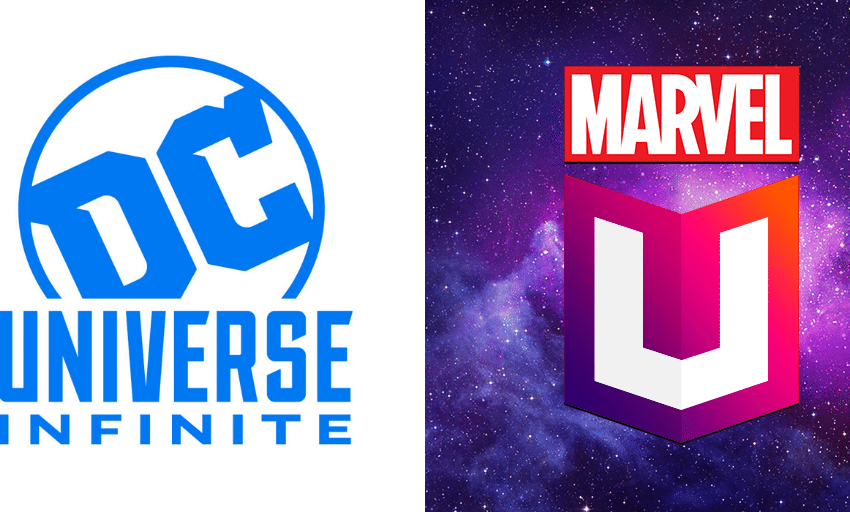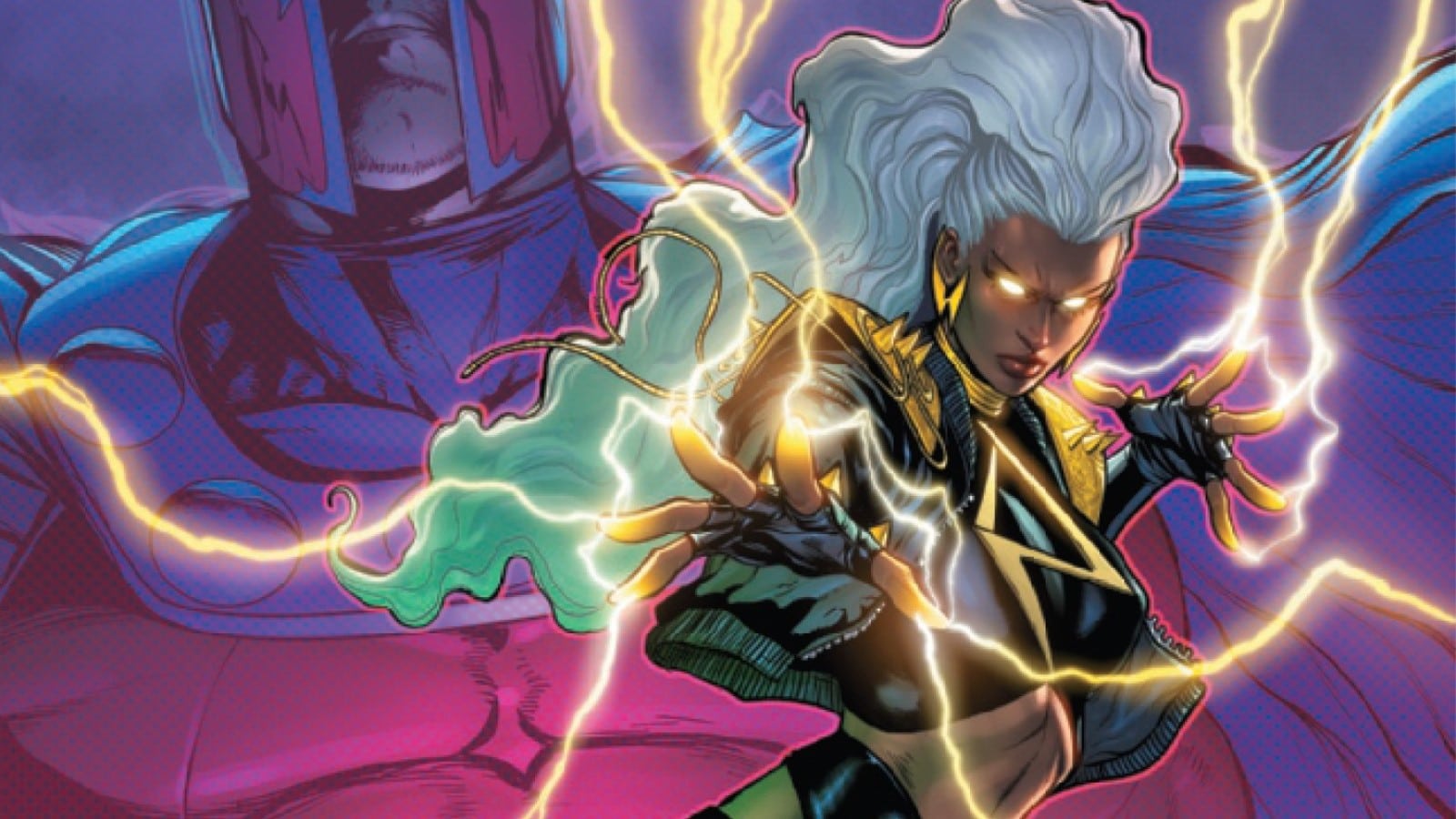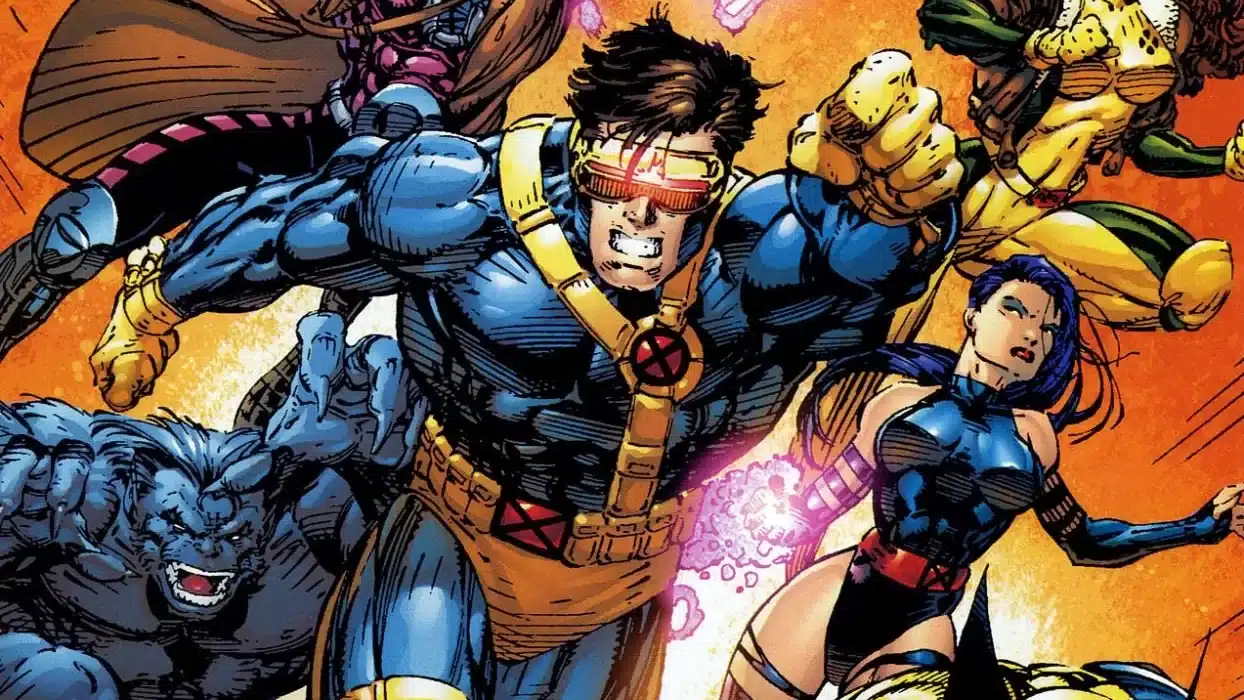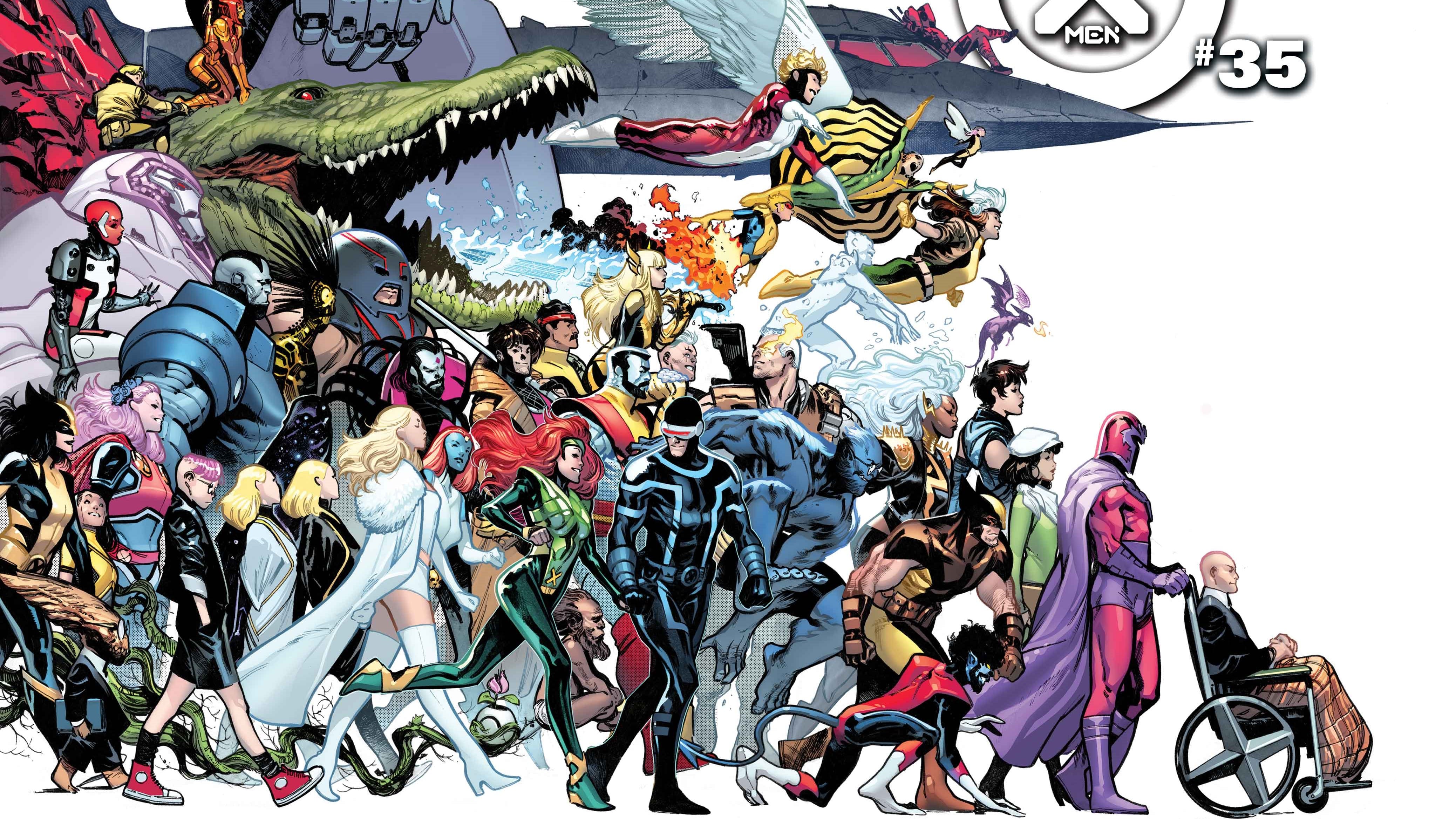Subscription services are everywhere, from Spotify to Netflix to Xbox Game Pass and so many more. And they’ve become a pretty big deal in comics, too, with Marvel Unlimited, comiXology Unlimited, Hoopla and DC Universe among others. With DC Universe Infinite launching this week and shifting to a comics-specific service, it seems like a good time to dig into what each service offers, from their library to their user experience.
Marvel Unlimited
This is the one I use the most. Marvel Unlimited, available worldwide, offers an incredible selection of Marvel’s library — pretty much everything that’s available digitally, at a delay of three months. The only exceptions seem to be some of their graphic novels and mature-line books, since they want to make sure the app continues to not be rated mature on the app store. And for about $10 a month (or $70 a year), it ends up being a really great deal.
The app itself is inconsistent. When it’s working, I only have a couple quibbles. For example, on Android, the Back button doesn’t take you to the home page, it opens the previous issue, marking it as unread and setting it as your most recently read issue. The guided reading mode works relatively well on modern issues, but the further back you go, the worse it works. Bug-wise, the app mostly works fine, but sometimes it’ll crash or just close the book I’m reading and force me to reopen it. Some folks report that when they try to open issues they’ll get stuck on a loading screen, but I haven’t had this issue.
The app also has a bunch of reading lists made by Marvel for specific characters, events or popular stories. It’s a good way to get some exposure to corners of Marvel Comics you’re not familiar with. Unfortunately, there’s no mechanism for user-defined reading lists. You can add issues to your “library,” but there’s no real way to organize them in a specific reading order, and you don’t have multiple libraries. The app also lets you download up to 12 issues at a time. This isn’t very useful if you’re on a long plane ride, but if you want to read an arc or two of a book when you’re gonna have a bad connection, it’s a pretty solid feature.
The desktop experience for MU isn’t good, though. The best way to find a specific issue is to search through Google, because the actual Marvel search function is abhorrent. You can’t log into Marvel’s website to access Unlimited unless you turn off adblock, and the reader is laggy and unwieldy. There is no guarantee that the next page will load when you press the button to go to the next page. There’s no way to track what issues you’ve read or leave an issue and reopen it on the same page. The tablet app is the best way to use the service by far, because you get all the benefits of using the app alongside your screen being big enough to not need the guided view.
Marvel Unlimited is available worldwide right now, and can be subscribed to for $9.99 per month or $69.99 per year.
ComiXology Unlimited
ComiXology is Amazon’s digital storefront for direct market comics, and is basically the only way to purchase digital copies of most comics. Even Marvel and DC’s digital storefronts sync with comiXology. ComiXology Unlimited is its subscription service — for $6 a month, you get access to the comiXology Unlimited library and a 10%-15% discount on all purchases (even new issues). If you buy a lot of comics on comiXology, this service can easily end up saving you money in the long term.
The discount aside, though, CU isn’t necessarily a service you should jump for because of the library. ComiXology Unlimited has very few complete series, serving more as a sampler for a lot of titles. CU has a lot of volume 1s for acclaimed series, mostly for non-Big Two books. That’s not to say there are no Marvel or DC books on there, but there are significantly fewer because obviously they’d like to pull that audience to their own subscription services. CU has both single issues and collected editions available to subscribers, but not always both for the same series. The real hidden bonus to CU is that you get all of the fairly recent comiXology Originals for free, including Chip Zdarsky and Jason Loo’s Afterlift.
The weird part of reading on CU is the “borrow” feature, where you can’t just open a book to read. You need to borrow it first, which adds it to a list of Unlimited comics you’re borrowing, and then you can read it whenever you want. And when you’re done, you can return it like a library book. But what’s weird is that despite CU being an “Unlimited” service, there is an upper limit of 50 books that can be borrowed at a time. You can return a book and borrow another one immediately, but you can’t go past this threshold.
The reader for CU is exactly the same as the reader for comiXology. The web reader’s mediocre and can’t handle quickly skipping through issues without lagging and failing to load pages. If you hold down the arrow key, the whole thing freezes and often requires you to change pages again before it’s able to load anything. It does have a two-page reading mode, though, which is something I wish was more common. The web reader also saves your progress through the book and syncs with the mobile/tablet app, which is really convenient.
The app reader uses higher-resolution images than the web reader, which is a bit of a weird experience. When you’re reading through your browser, there’s a much lower limit to how much you can zoom in, but on tablets you can basically zoom to the original art’s level of detail. There’s also a much better implementation of Guided View — the older issues still don’t always have it set properly, but pretty much every current issue can be read reasonably well. Both readers have a lot more quality-of-life settings that can be toyed around with for a better individual experience, too — comiXology’s clearly invested the most in its readers. Unfortunately, the app doesn’t really have a convenient way to jump back into your most recent reads if you need to close it for whatever reason, so you’ll have to remember that yourself. The app also requires you to fully download a book before you’re able to read it.
ComiXology Unlimited is only available in the United States right now, and can be subscribed to for $5.99 a month.
DC Universe Infinite
The DC competitor to Marvel Unlimited was shot in the foot almost immediately — when DC announced that the delay on its service was decreasing from a year to match Marvel Unlimited’s six months, MU decreased its delay to three months. But that delay aside, DC Universe has nearly every digitized DC comic older than six months available to read. A big part of the relaunch from DC Universe to Infinite was the inclusion of Vertigo titles such as Hellblazer and other series that weren’t on the original DC Universe due to their success in collected editions, but it’s still not everything. A quick search revealed that Shade, the Changing Man still isn’t available, and that’s just the first Vertigo book I thought of.
The web UI is a bit weird — it’s very much just a reskin of the original DC Universe UI, but in white instead of black and without any of the tabs for movies and TV shows. The top bar even looks like it’s missing some options after “All Comics.”
The web reader provides a better experience than comiXology’s, in terms of lag. They don’t have all the options that comiXology does (including the two-page reader, sadly), but the reader fixes the issue with holding down the arrow key by not ever moving more than one page at a time. In my time since the site updated to Infinite, I haven’t had any of the issues I had when it was DC Universe. This also has guided view, but again runs into the same problem as MU where older issues tend to have less well implemented guided view. The app reader was honestly slower in my experience — there were longer loading times when changing pages. Once the app completely crashed, and would keep crashing for a bit whenever I reopened it unless I force quit the app and restarted, but that only happened once. Bugs aside, it’s a pretty similar experience to the website in browser, so at least there’s consistency.
DC Universe Infinite, like comiXology Unlimited, tracks and saves what books you’ve been reading and your progress in them across website and app. It’s really convenient if you read on both. Unfortunately, the menu to go back into your recent issues is unwieldy compared to Marvel Unlimited, as you need to scroll through the list to go back even three different series.
But the best part of DC Universe Infinite is the ability to build your own list, akin to a playlist. You can add issues in a specific order and view them in the order you added them, and you can rearrange the items in the list to be in a specific order — at least on desktop. On the mobile and tablet app, it’s sadly only able to be arranged alphabetically or by release date. And it’s not perfect — there’s no real way to go to the next issue in the list once you finish an issue without closing the issue and going back to the list. But it’s a step forward from Marvel Unlimited, at the very least. You can open the list in your browser and then open each issue in a different tab, so you can read in whatever order you want and keep the list on hand. And more importantly, you can make several lists, instead of just the one “library.” I’m hoping this feature will get improved, because it’s a really good one.
Another good part of DCUI is their curated lists, much like the ones Marvel Unlimited has. These are pre-defined lists to read events, major storylines, or runs, all in the proper order. There’s introductions to characters like Harley Quinn and the Flash, there’s spotlights on George Perez’s Wonder Woman and Grant Morrison’s Batman, and there’s “essential” DC storylines all nicely packaged and easy to read. It’s a great way to get people less familiar with DC’s catalog up to speed.
DC Universe Infinite is available only in the United States for now, with plans to expand internationally later in 2021. It can be subscribed to for $7.99 per month or $74.99 per year.
Hoopla
Hoopla is a digital library app that’s literally connected through your public library. If your library supports it, you can log in with your library card information to be able to borrow anything in its selection for up to three weeks, with a limit on how many items you can borrow per month defined by your library. It’s got a surprisingly robust selection — a lot of DC (mostly modern), a smattering of Marvel and a HUGE amount of non-Big Two comics. Hoopla also has some prose books, TV shows, movies and music, if you’re into any of what it has available.
Hoopla wasn’t specifically designed for comics, so a lot of its experience is more generic — you borrow an item, and can access it for up to three weeks through the Hoopla app or website. Its comic reader is serviceable but not great — there’s a guided view called “Action Mode” that’s not very good, and an optional magnifying glass that honestly makes everything harder to read. The worst part though is on desktop — when you switch pages to a double-page spread, the whole image loads up as the size of a single page before stretching out, and when you switch back it does the opposite. It’s pretty disorienting, and I haven’t been able to figure out a way to disable it in the browser reader.
The app reader is a little bit better, since it doesn’t do that stretching thing, but it also won’t change pages if the current page is zoomed in even a little — so if you’re on a double-page spread and need to zoom in to read it, you need to zoom all the way back out before you can go to the next page. Somehow they managed to have two completely different problems with the same situation.
There’s at least a decent way to dive back into what you’re currently reading — Hoopla keeps all of your current borrows on one page, and orders them by how recently you opened them. On the app it’s the home page, and on the website the home page stores a decent amount before directing you to the separate “My Borrows” page. There’s also a convenient list of everything you’ve borrowed, which works wonders in case you had to return something before it was finished. There’s no real way to renew anything you’ve borrowed, but you can always burn another borrow (assuming you have one available) to get the same thing for another three weeks.
What Hoopla really offers, though, is its price — it’s totally free! Because Hoopla works with public libraries, all you need is a library card from a participating library, most of which will give you one for free if you live in their district. It’s really convenient and a great way to read a lot of non-Big Two comics without having to spend any money.
Hoopla is available in the United States and Canada via participating libraries.
Vishal Gullapalli is highly opinionated and reads way too much.






